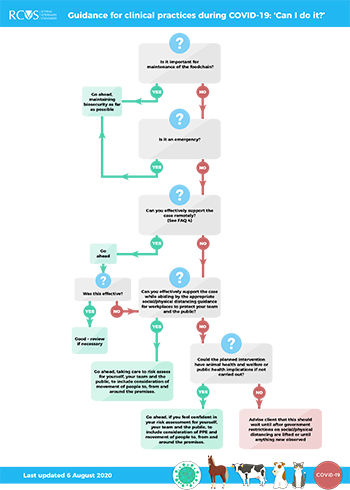-
-
- Standards Committee
- Advancement of the Professions Committee
- Audit and Risk Committee
- Education Committee
- Disciplinary Committee
- Charter Case Committee
- Preliminary Investigation Committee and Disciplinary Committee Liaison Committee
- Registration Committee
- Preliminary Investigation Committee
- Paper classification: some definitions
-
-
-
-
- About extra-mural studies (EMS)
- EMS requirements
- Information for vet students
- Information for EMS providers
- Information for vet schools
- Temporary EMS requirements
- Practice by students - regulations
- Health and safety on EMS placements
- EMS contacts and further guidance
- Extra-mural studies fit for the future
-
-
- Code of Professional Conduct for Veterinary Surgeons
- Code of Professional Conduct for Veterinary Nurses
- Contact the Advice Team
- XL Bully dog ban
- 'Under care' - guidance
- Advice on Schedule 3
- Controlled Drugs Guidance – A to Z
- Dealing with Difficult Situations webinar recordings
- FAQs – Common medicines pitfalls
- FAQs – Routine veterinary practice and clinical veterinary research
- FAQs – Advertising of practice names
- GDPR – RCVS information and Q&As
-
- Accrediting veterinary degrees
- Accrediting veterinary nursing qualifications
- Reasonable adjustments for student vets
- Health and disability in veterinary medicine study and practice
- The role of the veterinary schools and the RCVS
- Reasonable adjustments and the Equality Act 2010
- Reasonable adjustments and Day One Competences
- Examples of reasonable adjustments for vet students
- Annex
- Reasonable adjustments for student vets - summary
- Reasonable adjustments for student veterinary nurses
- Health and disability in veterinary nurse education and training
- Reasonable adjustments for students and the UK disability discrimination legislation
- Educational assessment of veterinary nurses
- Roles of key stakeholders in the application of reasonable adjustments
- Examples of reasonable adjustments for vet nurse students
- Embracing reasonable adjustments for student vet nurses - summary
- External review of the RCVS by ENQA
- Requirements for remote and online student assessments
RCVS Covid-19 Taskforce further extends remote prescribing guidance
6 August 2020
The RCVS Council Covid-19 Taskforce has recently decided to extend until the end of September the College’s temporary guidance that allows veterinary surgeons to prescribe prescription-only veterinary medicines (POM-Vs) remotely, without first having physically examined the animal, but with a minor language adjustment to allow more room for individual professional judgement in each case.
 RCVS Council originally decided to change the supporting guidance to the RCVS Code of Professional Conduct in March, in view of the nationwide lockdown measures in place at that time due to the coronavirus pandemic. This enabled veterinary practices to continue to provide the animal-owning public with veterinary services, a proportion of which via remote means, whilst safeguarding the health of their teams and clients.
RCVS Council originally decided to change the supporting guidance to the RCVS Code of Professional Conduct in March, in view of the nationwide lockdown measures in place at that time due to the coronavirus pandemic. This enabled veterinary practices to continue to provide the animal-owning public with veterinary services, a proportion of which via remote means, whilst safeguarding the health of their teams and clients.
In June, the Taskforce considered the latest situation at that time and decided to extend the guidance for a further eight weeks, with another review to be held no later than 6 August. At its recent meeting on 30 July, the Taskforce duly considered the guidance again, taking into consideration the pandemic’s progress and latest government guidance, the headline results from a survey of practice experience of remote consulting [to be published in the coming weeks], and additional third-party data from a number of veterinary practices.
The Taskforce considered in particular a number of additional issues, including: the need to continue to provide practices with flexibility in the face of possible local or national lockdowns; the need for inclusivity of those practice teams members and clients who may still be shielding; the likelihood of quarantine of members of the team due to travel and/or Test and Trace; and, the fact that no major safety issues had been identified as part of the RCVS-commissioned survey into the immediate impact of the temporary guidance.
The Taskforce was mindful that much of the data available to it was only relevant to small animal practice. It wished to attain more data about equine and farm animal practice, to ensure the differing needs of large animal practitioners could be considered more adequately. It also felt that if vets continued not to see clients, there could be an increased risk of an impact on their wellbeing, and on skills retention within the profession more widely.
On balance, however, the Taskforce considered the temporary guidance on remote prescribing should remain for the time being, but with a small change to step three of its coronavirus guidance flowchart (removing the words: ‘in the first instance’) to allow veterinary professionals more flexibility in deciding whether to consult remotely or face to face.
RCVS President Mandisa Greene, who chairs the Taskforce, said: “Whilst lockdown measures have been eased and matters have improved, we are far from being back to business as usual and the threat of returning to more severe lockdown measures, whether locally or nationally, is still very much alive.
“Nevertheless, with practices currently able to return to more routine treatments, the Taskforce recognises the need for more flexibility in our temporary guidance, so that veterinary surgeons can use their professional judgement to decide what is the most suitable approach in each individual case.”
The updated flowchart, along with all the College’s coronavirus guidance for the professions, is available online.